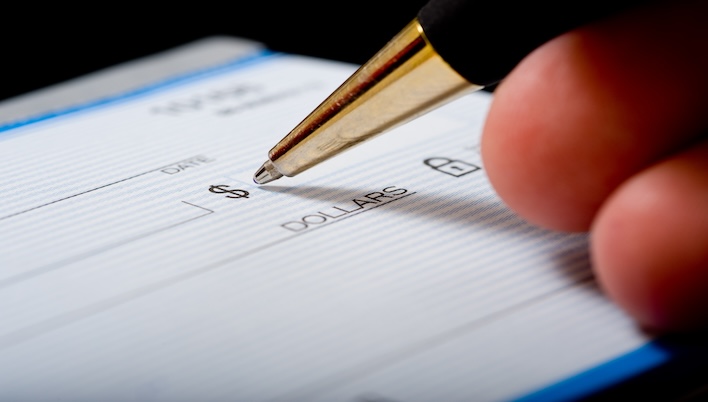This November 17–23 is International Fraud Awareness Week, a campaign that seeks to raise awareness about fraud and minimize the impact of fraud through anti-fraud education. It serves as a vital reminder of the prevalence of fraud—and the need for proactive prevention and detection.
As we celebrate International Fraud Awareness Week, we’d like to spotlight one of the most pervasive financial frauds for both individuals and businesses: check fraud. According to the U.S. Department of Treasury, check fraud has increased 385% since the pandemic. The prevalence and sophistication of check fraud continues to rise, posing new threats to the financial industry.
Stellar Bank CEO, Ray Vitulli, recently testified in front of the Texas Senate Criminal Justice Committee, sharing the impacts of these crimes and seeking stricter penalties for bad actors.
“From corporate account takeovers with bad actors trying to initiate fraudulent ACH and wires to stolen checks with bad actors trying to wash and manipulate the item, we’re experiencing a broad range of tactics with increasing levels of sophistication,” said Vitulli. “This requires banks to further enhance fraud prevention tools like callback procedures, multifactor authentication, and positive pay.”
“As Texas bankers, we’re asking for harsher penalties and prison sentences for those who engage in financial crime,” said Vitulli. “This type of crime is devastating to its victims, as well as the economy. We also ask for increased investment and state law enforcement specific to financial crimes.”
What are check scams?
Check scams take several forms, but they often involve counterfeit checks and check-altering techniques.
“Approximately 66% of our fraud matters are check fraud,” said Vitulli. “Our bank and fraud team are faced with increased sophistication and speed of scams. We’re seeing increased mail theft, check fraud attempts, and slow response from other banks when seeking recovery, as many banks are faced with both lack of resources and the significant impact of the fraud loss.”
With advancements in digital tools and printing technology, it’s easier than ever to create realistic-looking fake checks that look like they were issued by a legitimate business or individual. This allows fraudsters to replicate authentic checks to deposit or cash.
Another common tactic involves mail fraud and check altering, where a legitimate check is stolen and altered by the fraudster. With check altering, they change key details, such as the payee’s name or check amount, before depositing or cashing the check. Businesses are especially susceptible to check altering due to the high volume of checks and more complex transactions. Business accounts also tend to have larger balances, making them a prime target for fraudsters.
Fraudsters are also known to exploit mobile banking services to cash fraudulent checks without even entering a bank. Once the funds appear, they quickly withdraw or transfer the money, often making it difficult to recover.
What is mail fraud?
A person commits mail fraud when he engages in a scheme to defraud, with intent to defraud, and uses the mails in furtherance of that scheme. A scheme to defraud means depriving someone of property by deceitful or dishonest means.
With mail theft, fraudsters intercept checks or sensitive financial information for the purpose of committing check scams or identity theft. And it’s more common than you may realize. U.S. postal inspectors recover more than $1 billion in counterfeit checks and money orders each year.
To guard against mail theft, it’s important to stay vigilant. Be sure to deposit mail before the last pickup of the day, take mail to the post office, retrieve your mail frequently, and take steps to limit your mailbox or mail room access. In addition, always be cautious when receiving unsolicited offers or requests for personal information through the mail. Just like with email phishing attempts, you should always verify the legitimacy of the mail you receive before taking any action.
Protecting customers against fraud
Banking services, such as Stellar Bank’s Positive Pay services, can help protect checking accounts against check scams and mail fraud risk. Positive Pay matches clearing items against your file of issued items, verifying details, including the date, check number, dollar amount, and payee, allowing you to confirm transactions each day. It can also protect you against lost or stolen checks and unauthorized ACH debits.
“Banks must continually invest in technology, employee training, and customer training to combat financial crime. At Stellar, we’ve invested in machine learning for transaction monitoring, real-time review of ACH and wire transfers, targeted financial crime education, and law-enforcement outreach. We've also increased our fraud staff with a team of experienced fraud investigators,” said Vitulli.
If you suspect fraudulent activity on your account, contact Stellar Bank immediately so we can help.
Learn more about our commitment to fraud protection.




